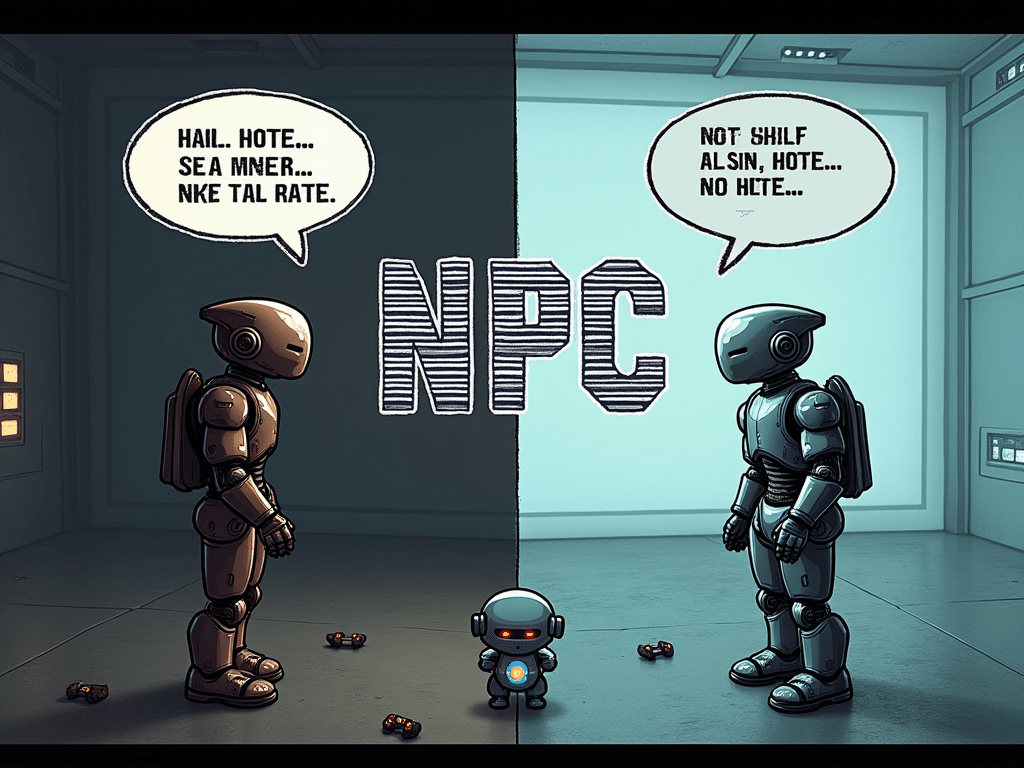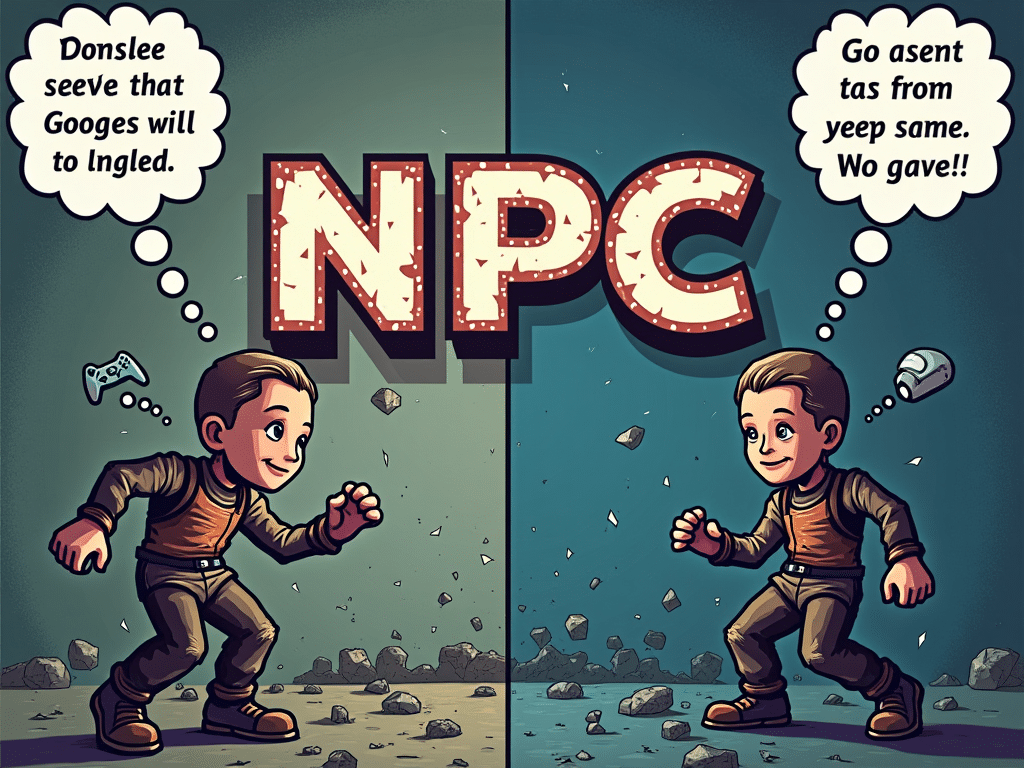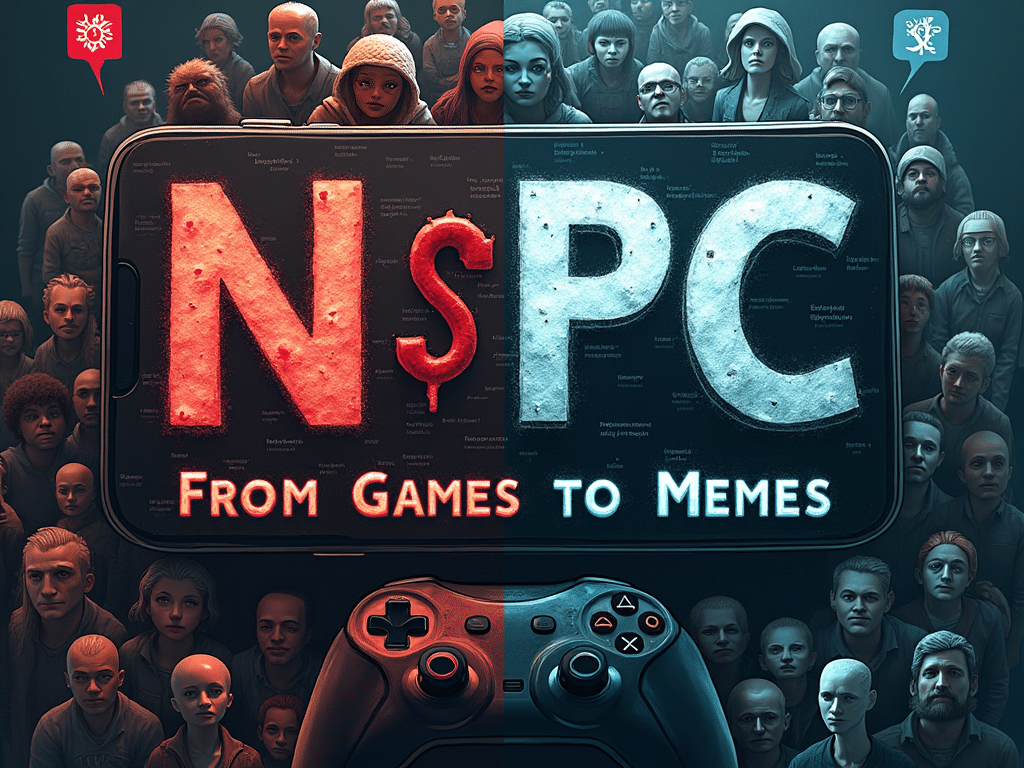When you hear the term “NPC,” what comes to mind? For many, it refers to non-player characters in video games. These characters add depth and interaction to gaming worlds, making them feel alive and immersive. Let’s break down what NPC means, its origins, and why it matters in both gaming and everyday conversation!
| Key Takeaways | Meaning |
|---|---|
| Definition | Non-player character; a character not controlled by players. |
| Origin | Emerged from tabletop RPGs and expanded into video games. |
| Common Usage | Refers to characters in games that provide context, quests, or obstacles. |
| Cultural Impact | Used in memes and discussions about social behavior outside gaming. |
NPC Meaning: Understanding This Essential Gaming Term 🎮

The Origins of NPC
To fully grasp the meaning of NPC, we need to trace its roots:
- Historical Context: The term “non-player character” originated from tabletop role-playing games (RPGs) like Dungeons & Dragons. In these games, players control their own characters (PCs), while NPCs are managed by the game master.
- Evolution: As video games became more popular, the term transitioned into digital gaming, where NPCs serve various roles—from quest givers to enemies.
I remember my first experience with an NPC in a video game. It was in a fantasy RPG where I had to talk to a wizard who gave me a quest. Without that NPC, I wouldn’t have known what to do next!
Also read: Elmo
What Is an NPC?

An NPC is essentially any character in a game that players cannot control directly. Here’s how they function:
- Role in Gameplay:
- NPCs can provide quests, sell items, or offer valuable information.
- They can also act as obstacles or enemies that players must overcome.
- Types of NPCs:
- Helpful Guides: Characters that assist players on their journey.
- Merchants: Characters that sell items or upgrades.
- Enemies: Characters that challenge players and create conflict.
For example, in The Legend of Zelda, characters like Princess Zelda serve as key NPCs that guide Link throughout his adventures.
Why Are NPCs So Important?
NPCs play a vital role in making games engaging and immersive. Here’s why they matter:
- World-Building: They help create a believable world filled with stories and interactions.
- Player Engagement: By providing quests and challenges, NPCs keep players invested in the game.
- Emotional Connection: Well-developed NPCs can evoke emotions and create memorable experiences.
I once got really attached to an NPC named Clementine from The Walking Dead game series. Her story arc was so compelling that I felt genuinely invested in her fate!
Also read: IRL Meaning
The Cultural Impact of NPC
In recent years, the term “NPC” has taken on new meanings outside of gaming:
- Social Commentary: People sometimes use “NPC” to describe individuals who follow societal norms or opinions without critical thinking—like they’re just going through the motions.
- Memes and Humor: The concept of an NPC has become popular in memes, often depicting someone who seems unaware or unoriginal.
For instance, I saw a meme where someone was acting like an “NPC” during a conversation about politics—just repeating what they heard without any personal insight. It was funny but also made a point about how we sometimes interact with information.
The Different Types of NPCs

Now that we’ve covered the basics of what an NPC is and its cultural significance, let’s explore the various types of NPCs you might encounter in games. Each type serves a unique purpose and enhances the gaming experience in different ways.
1. Helpful Guides
- Description: These characters assist players by providing information, quests, or tutorials.
- Examples:
- In The Legend of Zelda, characters like the Great Deku Tree give essential guidance to Link.
- In RPGs, you often find wise old sages or mentors who help you understand the game mechanics.
2. Merchants
- Description: NPCs that sell items, weapons, or upgrades to players.
- Examples:
- The shopkeepers in Final Fantasy games who provide potions and gear.
- In Skyrim, merchants in towns offer various goods, allowing players to trade and upgrade their equipment.
3. Quest Givers
- Description: These NPCs initiate quests and provide objectives for players to complete.
- Examples:
- The various characters in World of Warcraft who send players on missions throughout the game world.
- In Assassin’s Creed, NPCs often provide historical context and tasks that move the story forward.
4. Enemies
- Description: NPCs that challenge players, often acting as obstacles to progress.
- Examples:
- The numerous foes you encounter in action-adventure games like Dark Souls.
- Rival characters in sports games that provide competition.
5. Background Characters
- Description: These NPCs populate the game world but do not interact with players directly. They help create a lively atmosphere.
- Examples:
- Townsfolk in games like Animal Crossing who go about their daily lives.
- Random pedestrians in open-world games like Grand Theft Auto.
Also read: THOT Meaning
The Generational Divide
Interestingly, different generations might interpret or use the term “NPC” in unique ways:
| Generation | Interpretation of NPC |
|---|---|
| Gen Z | Often use it humorously; relatable in memes |
| Millennials | Mix of casual and serious; understands context |
| Gen X | More likely to associate it with traditional gaming |
| Boomers | Primarily see it as part of classic gaming |
For example, my younger siblings often reference NPCs when discussing their favorite games. They might say something like, “That character is such an NPC!” when describing someone who seems bland or predictable.
The Impact of NPCs on Gaming
NPCs are crucial for creating immersive gameplay experiences. Here’s how they enhance games:
- World-Building: They populate the game world, making it feel alive and dynamic. Without NPCs, many games would feel empty and uninviting.
- Storytelling: NPCs often drive the narrative forward by providing context, background stories, and quests that engage players emotionally.
- Player Engagement: By offering challenges and rewards, NPCs keep players invested in the game. They create a sense of progression that motivates players to continue exploring.
I’ve had countless hours of fun interacting with NPCs in various games, whether it was helping them with their problems or just enjoying their quirky dialogue.
Also read: Charizarding
Conclusion
In summary, NPCs are more than just background characters; they are integral to the gaming experience. From helpful guides to challenging enemies, these non-player characters enrich our adventures and create memorable moments.
So next time you’re playing your favorite game, take a moment to appreciate the NPCs around you—they might just be the unsung heroes of your gaming journey! If you’re interested in exploring more about gaming terms or slang, check out our articles on type beats or weeb culture. Keep gaming and enjoy those adventures! 🎮✨







